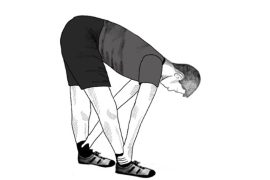The new study challenging the conventional wisdom on high-intensity exercise (HIE) suggests that while exercise is generally effective for weight loss, a single session of HIE that causes heavy sweating can paradoxically lead to weight gain. This unexpected outcome is not due to changes in food intake but rather to disruptions in physical activity levels and core body temperature post-exercise.
Lead researcher Takashi Matsui highlighted that intensity exercise can reduce subsequent physical activity and lower core body temperature, factors that may contribute to weight gain despite the calorie burn during exercise. The role of cortisol, the stress hormone, in this process. Elevated cortisol levels from HIE can increase appetite, reduce motivation for further physical activity, and disrupt the body’s circadian rhythm, leading to increased calorie consumption and potential weight gain over time.
This counterintuitive finding challenges the notion that more intensity exercise always leads to better weight management outcomes and underscores the complexity of hormonal responses to exercise intensity. Balancing exercise intensity with recovery and overall lifestyle factors remains crucial for optimizing weight and health outcomes.
Study Findings and Contradictory Insights:
Research led by Takashi Matsui, PhD, highlights that while exercise is generally beneficial for weight loss, a single session of intensity exercise that induces heavy sweating can paradoxically reduce subsequent physical activity and lower core body temperature. This unexpected outcome can lead to weight gain despite no increase in food intake immediately post-exercise.
Role of Cortisol and Hormonal Factors:
HIE can disrupt the body’s circadian rhythm and elevate cortisol levels. Elevated cortisol not only increases appetite but also diminishes motivation for further physical activity, potentially leading to higher calorie intake that exceeds calories burned during exercise. This cycle can ultimately result in weight gain.
Impact on Metabolism and Cravings:
HIE initially boosts metabolism, accelerating calorie expenditure. However, the accompanying surge in cortisol can trigger intense cravings, especially for high-calorie, unhealthy foods. Giving in to these cravings can nullify the calorie deficit achieved through exercise, contributing to weight gain over time.
When HIE Can Backfire:
The not all HIE sessions are equal. Excessive duration, frequency, or intensity of HIE without adequate rest can disrupt hormonal balance, elevate stress levels, increase appetite, and heighten the risk of weight gain.
Optimizing HIE for Effective Weight Management:
To harness the benefits of HIE while avoiding potential drawbacks:
- Incorporating Variety: Alternate high-intensity workouts with lower-intensity activities like yoga or brisk walking to promote recovery and prevent overtraining.
- Prioritizing Nutrition: Manage post-workout hunger by consuming nutrient-dense foods that support recovery without overindulging.
- Diversifying Your Routine: Include a variety of exercises to engage different muscle groups, prevent workout monotony, and avoid performance plateaus.
- Listening to Your Body: Pay attention to signs of fatigue, persistent soreness, or excessive hunger, which may indicate the need to adjust workout intensity or frequency.
In conclusion, while HIE remains a valuable tool for fitness and weight management, a balanced and strategic approach is essential. Understanding individual responses to exercise intensity, managing hormonal fluctuations, and maintaining nutritional balance are critical to achieving sustainable weight management goals through high-intensity exercise.
Disclaimer:
The information contained in this article is for educational and informational purposes only and is not intended as a health advice. We would ask you to consult a qualified professional or medical expert to gain additional knowledge before you choose to consume any product or perform any exercise.








